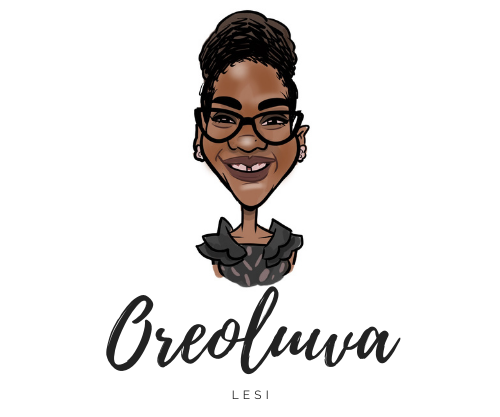How life has changed. Does that sound like a cliche? Perhaps, but let me explain what I mean.
I grew-up in a firmly middle-class family. Both my parents were engineers. They themselves grew-up in what were probably considered middle-class homes. They had the benefit of being born into families that cared about education and were determined that their children be educated .
In the 1950s and ’60s, when my parents grew-up, education was regarded as the absolute leveler. In some cases, with just a secondary school education, a world of opportunities opened-up to you and you could secure jobs that afforded you a comfortable enough income to take care of an entire family.
If you proceeded to a tertiary institution, like a university or polytechnic, your prospects were even better.
Bright young things vied for scholarships that led to university degrees that in turn led to entry into companies where one could be assured of the chance to build a lifelong career aka “jobs for life.”
The civil service was still a highly prestigious career path for the most intelligent and high-performing young people.
You knew that if you worked hard, you would steadily ascend the professional ladder. Over a 40 or so-year career, your income would rise, you could get a company car, official living quarters, health coverage and other perks for yourself and you family. All in all, it would a good life. It was the ultimate showcase of how getting an education pays.
Fast-forward 3 decades later to the turbulent 1980s and the picture was radically different. The best graduates were certainly no longer opting for careers in the civil service anymore. And job stability was fast becoming a thing of the past.
Now, move forward another 4 decades to the 2020s and the world as our parents and grandparents knew it is totally gone, along with many of the hallmarks of success.
A job for life? No!
A safe social net where medical and education costs were taken care of? No way!
An official house? Highly unlikely!
Maybe the biggest change, however is the notion that toiling away silently at your work would lead to promotion. Back in those days, decorum was held high and tooting your own horn was decidedly not. Without drawing any attention to yourself, your work would speak for you. And what volumes it would trumpet on your behalf, telling all and sundry how proficient you were at your work and deserving of advancement. Your superiors would notice your quiet, determined efforts and reward you with a higher job level, more benefits and money.
So perhaps it’s no surprise that many of us who are in our mid 40s and 50s still regard hard, steady work as the route to success and are rather lost in this modern world where meteoric online fame is possible, bolstered by frequent postings of well-crafted videos and aspirational photos. In many cases, the “content” does not even have to be particularly original or intelligent, but rather, persistent and in-your-face.
This type of “putting yourself out there” still feels rather alien to many Generation Xers I know.
My work has been centered around technology for over 20 years and I consider myself a fairly early adopter of social media or web 2.0, as it was known then, starting my first blog in 2005 when many of my peers had no idea what that was.
I started documenting vignettes of my life in words on Ore’s Notes, my blog which I managed for the next 7 years. So perhaps sharing on a public stage has not been totally strange to me. The key difference is I started my blog with the intent to be anonymous. Although named after myself, I figured that there were so many other Ores who lived a life similar to mine in Lagos, Nigeria, that my words would not be linked to me. I felt free to write what I really felt.
Somehow though, people started to figure out that I was the same Ore behind the blog and perhaps that’s when the ease with which I shared started to seize up.
A few years after my last post on Ore’s Notes, I opened my Instagram account, which remains the social media platform on which I am most active. I started sharing again, but without the same ease that my formerly semi-anonymous blog had afforded me.
I would look at people who shared videos of themselves talking about everything and nothing. People who posted pictures of their children and inside their homes. Who shared what seemed to me to be deeply personal information and wonder “Wow! How can they do that?“
But this is a new world. One in which “going live” on Instagram or Facebook on a whim is considered absolutely normal. As we converse with and show ourselves off to the world, we can all be instant stars. This is a world where marketing yourself or your products and services aggressively online is considered the right thing to do (after all if you don’t market yourself, who will do it for you?).
And although social media has been my stomping ground for over a decade, I’ll be honest: I still feel out of place at times. Trying to keep-up with the lightening pace of the posts and put out engaging content can feel daunting and exhausting. And sometimes, I’m tempted to beg off the entire thing. I recognise that many people in their mid-40s and above feel the same way. Selling ourselves and so publicly is still so alien to many of us.
But when I’m tempted to hide under my bed covers and throw away my phone, I recall the incredible opportunities I have had courtesy of my social media presence. I have been invited to give paid keynote addresses, to facilitate interesting conversations, gone on all-expenses paid trips and met so many incredibly accomplished people.
So, if the thought of putting yourself out there makes you cringe, keep the following points in mind:
1. Your Voice is a Gift: I read these words in the deeply insightful book “Collide” by Moses Ida-Micheals just yesterday. And it struck me both for its simplicity and truth. There is no one else on this earth like you, with your particular genetic make-up, your experiences, talents and even foibles.
That means that what you have to say – if you say it honestly and sincerely – is YOUR perspective. Of course, it doesn’t mean that others won’t share similar sentiments, but they will likely not have arrived at their conclusions in the same way as you and express it in the same way as you do.
And when you share your voice with the world, you provide opportunities for others to hear what you have to say, possibly learn from it or connect with your experience in a deeper and more meaningful way.
When I post something and people comment or reach out to me to say “What you said really hit home with me and I realised that I am not alone in this” is pure gold. I realise that my experiences – good and bad – can help others in similar situations.
2. Your Gifts are Meant to be Used: I’m going to the bible for this one. Many of us know about the parable of the talents. The servants who used the talents that had been given to them were given even more along with considerable financial gain. However, the servant who buried his talent had even the little he had taken away from him.
Does that sound familiar?
I am sure it does. Virtually everyone has that thing(s) that we are good at, but we dismiss because it comes to us so easily or perhaps we are too afraid to take the step to make more out of it.

I love to write and in primary school, I write stories copiously and shared them with friends and family. Then I got to an age, where I became too self-conscious to share my writing with any one. With time, I stopped writing all together. Starting my blog gave me an opportunity to write daily. Practice does in indeed make better.
I’m not sure what your talent is, but if your approach is “I want to share my gift with others” or “I want to give myself the room to practice each day so I can get better“, you will probably realise that the act of sharing gave you the opportunity to improve at your craft, become more comfortable “doing” and maybe even brought you to the attention of potential collaborators or supporters.
Social media is one way to hone your talent or share it with the world, but there are still the old-school fora like in-person meet-ups, in your close friend or family circles.
And unlike most things in life, the more you use your talents, the more you realise you have. And think about it: God gave x y z gifts to you, yes YOU (not the person behind you). He picked them out and bestowed them on you specially and then you decide not to use them at all? That’s really sad.
I really like what Simon Sinek says here about sharing your gifts.
So how do you share your voice with the world?
1. I suggest you find whatever platform you are most comfortable with. Don’t go live because that’s what everyone else seems to be doing or because the “experts” say video is the type of content that receives the most engagement.
Start with what you truly feel comfortable with. Maybe that’s writing. Maybe that’s a podcast (loved by attention-shy people the world over). Maybe its through photos (not of you, but of your subject).
2. Find your space and start to share what you feel at ease sharing. In my experience, confidence grows in drips and drops not leaps and bounds. Each post you make makes you a teeny-weeny bit more comfortable and each comment you receive (whether it’s online or offline) helps you realise that your voice serves a purpose that is greater than you. By not focusing on yourself, but rather on the thing you are sharing, you take the pressure off you.
And then one day, when someone says to you “I really love how easily you do xyz. I wish I could do that too.” you will realise just how far you have come.


Recent Comments